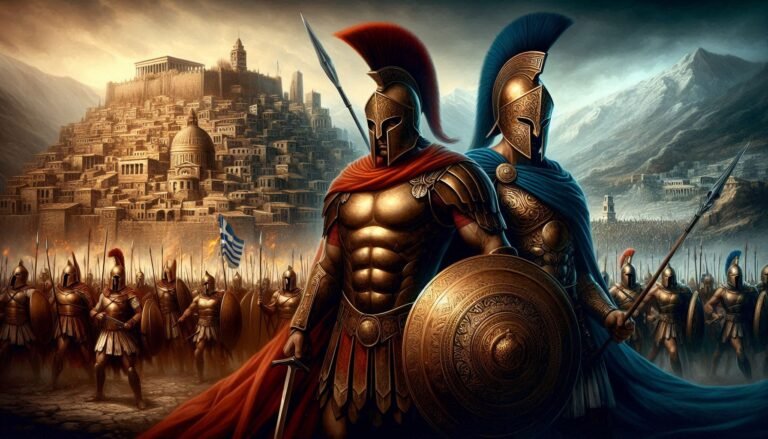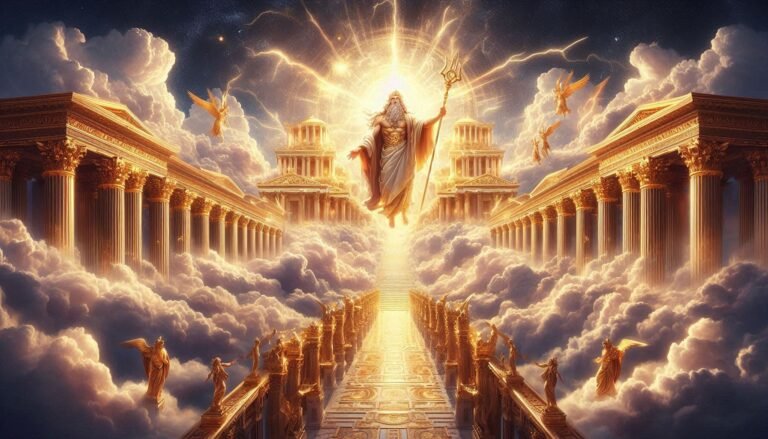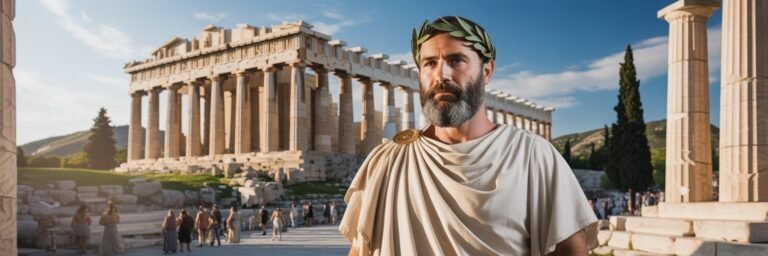INTRODUCTION
The timeline of Key Moments in Classical Greece, the week that is commonly recognized as 480-323 BC, sounds much like a mythic tale. It is a breathtaking saga of the human spirit’s defiance and triumph, of art and philosophy, of war and politics, of a civilization so intense and radiant that its impact echoes even today in every corner of the world. Wandering in the dim corridors of the past, striding across the battlefields of Thermopylae or Marathon, or strolling beneath the glistening marbles of Parthenon, every moment in the timeline is filled with a poetic rhythm that reverberates in our collective consciousness.
HISTORICAL BACKGROUND
As we hover over the timeline, the beginning of the Classical era, around 480 BC, is marked by a series of confrontations. Persia, the giant of the Near East, had stretched its dark wings over the Grecian lands in what is now known as the Greco-Persian wars, lasting from 499-448 BC. The subsequent victories of Greece, especially the naval triumph at Salamis in 480 BC, signified a turning point. The valley of Marathon, the Straits of Thermopylae, and the waters of Salamis witnessed the Greeks hold their ground against the Persians. The Periclean Age followed, bearing with it the golden age of Athens, heralded by statesman Pericles, and the erection of timeless architectural wonders like the Parthenon.
THEORIES AND INTERPRETATIONS
Many theories have arisen surrounding key aspects of Classical Greece, particularly concerning its political system. It was during the Classical ERA when democracy took root in the Athenian city-state. Initially, many historians viewed the Athenian system as ‘anarchy painted in attractive colors’, echoing a dismissive perspective. Yet, later views, principally from Moses Finley’s works, articulate Athenian democracy as a functioning and complex political system maintained by informed citizens.
MYSTERIES AND CONTROVERSIES
One perplexing mystery resides in the hub of Classical Greece, the Oracle at Delphi. Across the span of Classical Greece, a woman known as the Pythia served as the mouthpiece of Apollo, delivering cryptic prophecies to city-states, generals, and kings. Historically, numerous explanations have sought to demystify the Oracle’s trances, ranging from ethylene gases released from beneath the temple to pure spiritual intervention.
SYMBOLISM AND CULTURAL SIGNIFICANCE
When one dissects the symbolisms of Classical Greece, the prominent one remains in the form of their Gods and Goddesses. Each deity embodied a certain aspect of the society, reflecting their values and aspirations. Athena bore the banner of wisdom and strategic warfare, while Dionysus represented wine and festivals. These symbolisms penetrated deep into the fabric of society, shaping their ethos and rituals.
MODERN INVESTIGATIONS
New technological advancements offer unprecedented insights into Greece’s classical period. Geoarchaeological studies indicate the city of Helike, mentioned by ancient historians but lost to the depths of the Gulf of Corinth after an earthquake in 373 BC, has recently been located and excavated. Digital reconstructions, including The Digital Sculpture Project, aim to revive the vibrancy of classical sculptures, showing them in their hand-painted glory, shattering preconceptions of bare white marbles.
LEGACY AND CONCLUSION
Classical Greece has bequeathed a profound legacy. Democracy owes its germination to the Athenian city state, while the Socratic Method, introduced by Socrates, continues to function as the basis for critical thinking. Tragedies and comedies of Sophocles, Aeschylus, and Aristophanes set the cornerstone of theatre. The grandeur of the Parthenon and the Temple of Zeus continue to inspire architectural aesthetics globally.
The timeline of Classical Greece is like an ancient tapestry woven in shades of courage, insight, wisdom, beauty, and resilience—a testament to human potential and spirit. Across its span, we see the dawn of rational thought, the first steps of democracy, the assertion of human might against more formidable foes, the birth of artistic vision, and finally, a society striving for a balance between the human and the divine. Indeed, it questions, provokes, and inspires us to reconsider our roots and the pathway of our journey. As W.B. Yeats rightly said, ‘Yet all that’s best of dark and bright/in her aspect and her eyes.’
Classical Greece, with all its defining moments, has trickled into the shifting sands of time. Yet, it remains alive in our spirit, in our collective memory, etched in the bedrock of our civilization, resonating across the centuries reminding us of who we are, and what we aim to become—a quintessential roadmap to the human condition. A voyage in this timeline is not merely a romantic trip down memory lane; it’s a profound contemplation of humanity and its journey—a journey transcending the confinement of the past, embracing the essence of the present, and dreaming the possibilities of the future.





